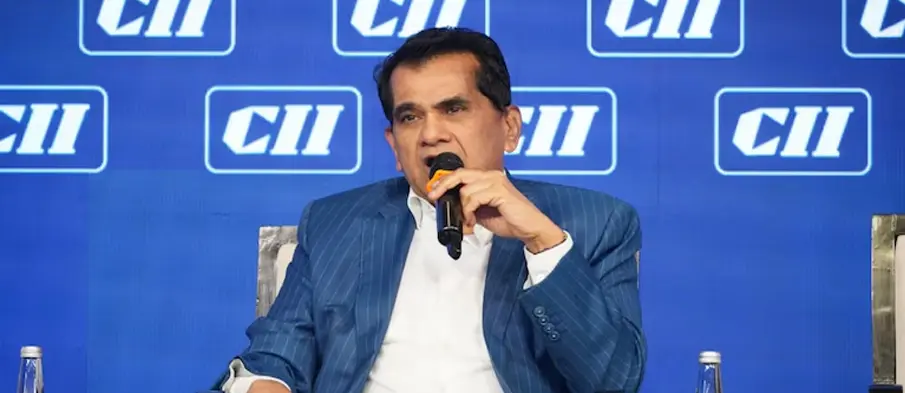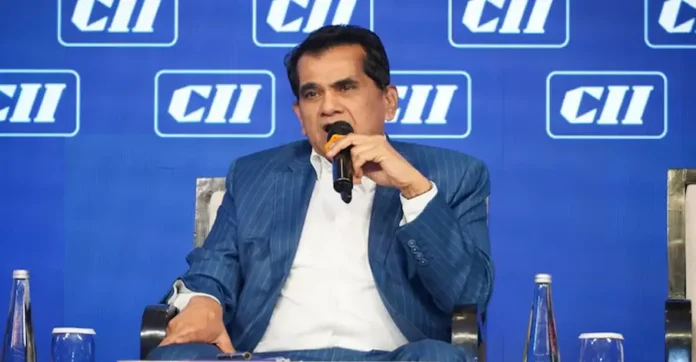
Addressing the Confederation of Indian Industry (CII) Business Summit 2024, Amitabh Kant, G20 India Sherpa and former CEO of NITI Aayog, expressed robust confidence in India’s economic future. He predicted that India would surpass Germany and Japan by 2027 and significantly contribute to global GDP growth between 2035 and 2040.
“By 2027, we will overtake Germany and Japan. Analysts are right in saying that 30 percent of the global GDP growth will come from India between 2035 and 2040,” stated Kant during the session on ‘Future of Globalisation: Challenges for Indian Industry.’
Highlighting India’s remarkable economic reforms, Kant noted that the country has transitioned from being part of the “fragile five” to ranking among the world’s top five economies. “Because India has carried out a huge amount of structural reforms, it has moved from the fragile 5 to the top 5 and has grown at about 8.4% in the last 3 quarters,” he observed.
Kant urged Indian companies to adopt a global outlook and prioritize quality to accelerate growth in international markets. “Indian companies must start thinking globally to penetrate global markets for accelerated growth. They should also focus on quality,” he emphasized.
Additionally, Kant underscored the importance of state-level progress in driving national development. He called for collaborative efforts between the central government and states to create 12-13 “champion states” with annual growth rates of 10-11%. “The government needs to work with the states as we need to look at building 12-13 champion states growing at 10-11% per annum. If states grow, India grows,” he asserted.
Kant also highlighted the need for a closer partnership between the Confederation of Indian Industry (CII) and state governments over the next five years to streamline state-level processes.
The CII Business Summit 2024 gathered industry leaders, policymakers, and experts to discuss strategies for sustaining India’s economic momentum in an increasingly interconnected world.
Kant further emphasized the urgent need to accelerate the adoption of electric vehicles (EVs) in India. He highlighted the government’s initiatives and the crucial role of the private sector in this transformation. “There is a huge disruption taking place, and it’s important that we accelerate the pace of electric vehicles, both in two-wheelers and three-wheelers, which account for about 75 percent of our vehicles. The government has already allocated Rs 57,613 crores for procuring 10,000 electric buses,” he noted.
Predicting the future growth drivers, Kant mentioned, “Many companies are engaged in battery manufacturing, which will be the next big driver of growth,” envisioning India as a global hub for battery production. Setting an ambitious goal, he stated, “Our objective should be to make India fully electric in terms of two-wheelers, three-wheelers, and buses by 2030, ensuring that India becomes an electric vehicle nation.”
Meanwhile, Rajesh Kumar Singh, Secretary of the Department for Promotion of Industry and Internal Trade, highlighted India’s impressive climb in global GDP rankings. “In 2012, we were at 11 in the GDP rankings. Today we are at 5, jumping 6 places. It is inevitable that we will reach 3 in the next 2-3 years. We are positioned to regain our historical share in global trade and investment on the back of sustained growth rates,” he said during a session on ‘Future of Competitive India: Should India have an Integrated Trade & Invest Policy?’





